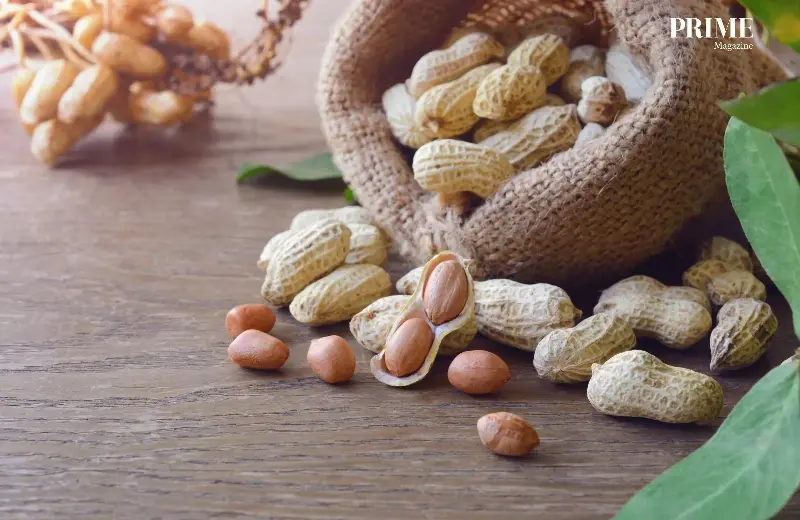
Peanuts laid on a table
From satay sauce and peanut pancakes to roasted street snacks, peanuts are woven into Singapore’s food culture. But did you know they’re not actually nuts? Botanically, peanuts are legumes — cousins of beans and lentils — yet they share the same nutrient-rich, heart-healthy properties as tree nuts.
The health benefits of peanuts are impressive: they support heart health, boost energy, and provide affordable plant protein that fits easily into everyday meals.
Nutritional Profile of Peanuts
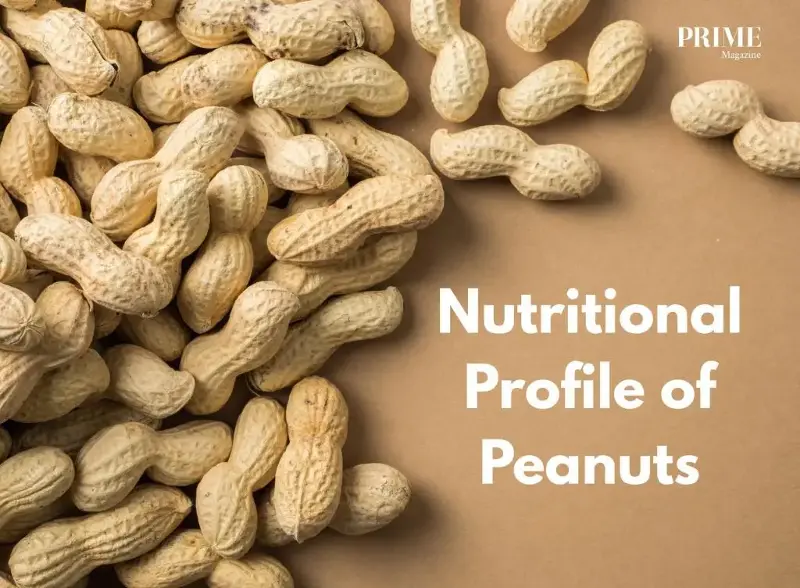
A 28-gram serving (about a small handful) offers a balanced mix of nutrients:
-
Calories: 160–170
-
Protein: 7 g
-
Fibre: 2.4 g
-
Healthy fats: 14 g (mostly monounsaturated and polyunsaturated)
-
Magnesium: 48 mg
-
Niacin (Vitamin B3): 4.2 mg (25 % of daily needs)
-
Resveratrol and polyphenols: natural antioxidants also found in red wine
This combination of protein, good fats, and antioxidants makes peanuts one of the most nutrient-dense, budget-friendly foods in the world.
Health Benefits of Peanuts for Heart Health
The health benefits of peanuts begin with their powerful effects on the heart. Studies show that regular peanut consumption can lower LDL (“bad”) cholesterol and reduce inflammation in blood vessels.
Peanuts contain oleic acid — the same heart-protective fat found in olive oil — and plant sterols that block cholesterol absorption. They’re also rich in magnesium and niacin, which help regulate blood pressure and circulation.
Swapping processed snacks for a handful of roasted or boiled peanuts can therefore support cardiovascular wellness without breaking the bank.
Peanuts are sometimes called “poor man’s protein”, but their nutritional value rivals that of many animal sources. With 7 grams of protein per serving, they help build and repair muscle tissue while providing sustained energy throughout the day.
The health benefits of peanuts also include replenishing glycogen stores after exercise, making them a popular post-workout snack. Pairing peanuts with fruits such as bananas or apples creates an easy, balanced refuel for active individuals.
Brain and Mood Support
Thanks to their B-vitamin content and amino acids, peanuts are excellent for brain health. Niacin and folate help maintain cognitive function, while tryptophan supports serotonin production — aiding mood balance and stress management.
Resveratrol, a potent antioxidant also found in grapes, may protect nerve cells from damage and support memory as we age. Including peanuts in your diet can therefore nourish both mind and mood.
Weight and Blood Sugar Management
Despite their calorie count, peanuts can aid healthy weight control. Their fibre, protein, and fat combination helps increase fullness, reducing overeating. Research shows that people who eat peanuts regularly tend to maintain a healthier body weight than those who avoid them.
Peanuts also have a low glycaemic index, helping stabilise blood sugar levels — particularly beneficial for individuals with diabetes or metabolic syndrome.
Peanuts and Longevity
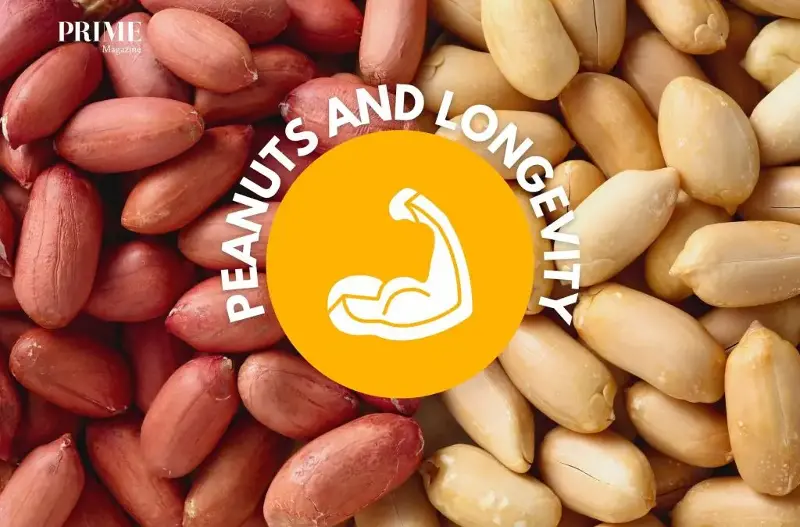
Peanuts and Longevity
Peanuts’ antioxidants and polyphenols contribute to cellular protection and slower ageing. In large population studies, higher peanut intake has been linked with reduced risk of heart disease and all-cause mortality.
It’s proof that this everyday ingredient — so common in local cuisines — quietly supports long-term health and vitality.
How to Enjoy Peanuts Wisely
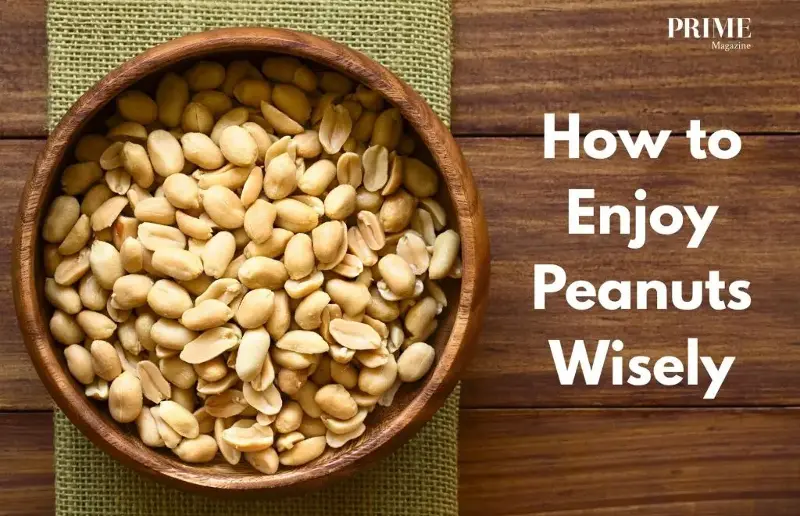
How to enjoy peanuts wisely
Peanuts are deliciously versatile, but preparation matters. Nutritionists recommend about 28 g (a small handful) per day.
Smart ways to enjoy them:
-
Sprinkle crushed peanuts on porridge, noodles, or desserts.
-
Blend into homemade satay sauce or peanut butter.
-
Choose unsalted or boiled peanuts for a healthier option.
-
Avoid deep-fried or sugar-coated versions high in trans fats.
Peanut butter can be a nutritious choice too — just look for natural options with no added sugar or hydrogenated oils.
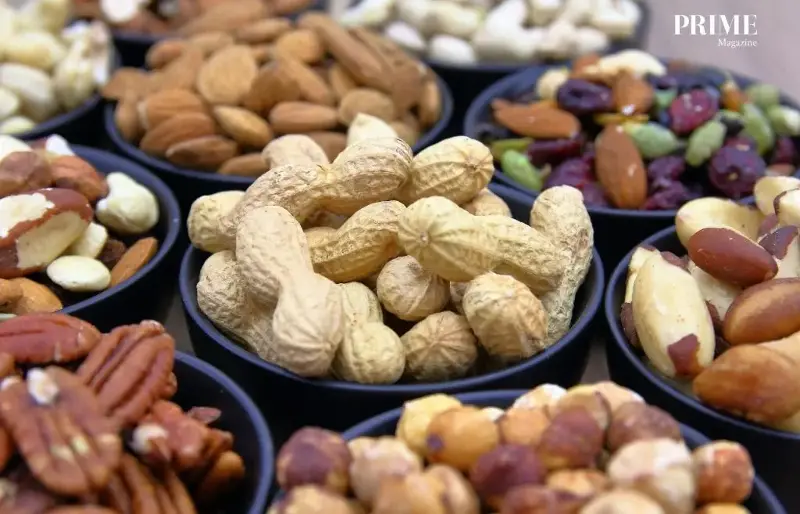
bowl of peanuts
The Takeaway
Peanuts may not technically be nuts, but they’ve earned their place among the healthiest foods on the planet. The health benefits of peanuts include improved heart health, steady energy, and enhanced mood — all wrapped in a familiar, affordable snack.
From hawker stalls to home kitchens, this humble legume proves that nutrition doesn’t have to be fancy to be powerful. PRIME
